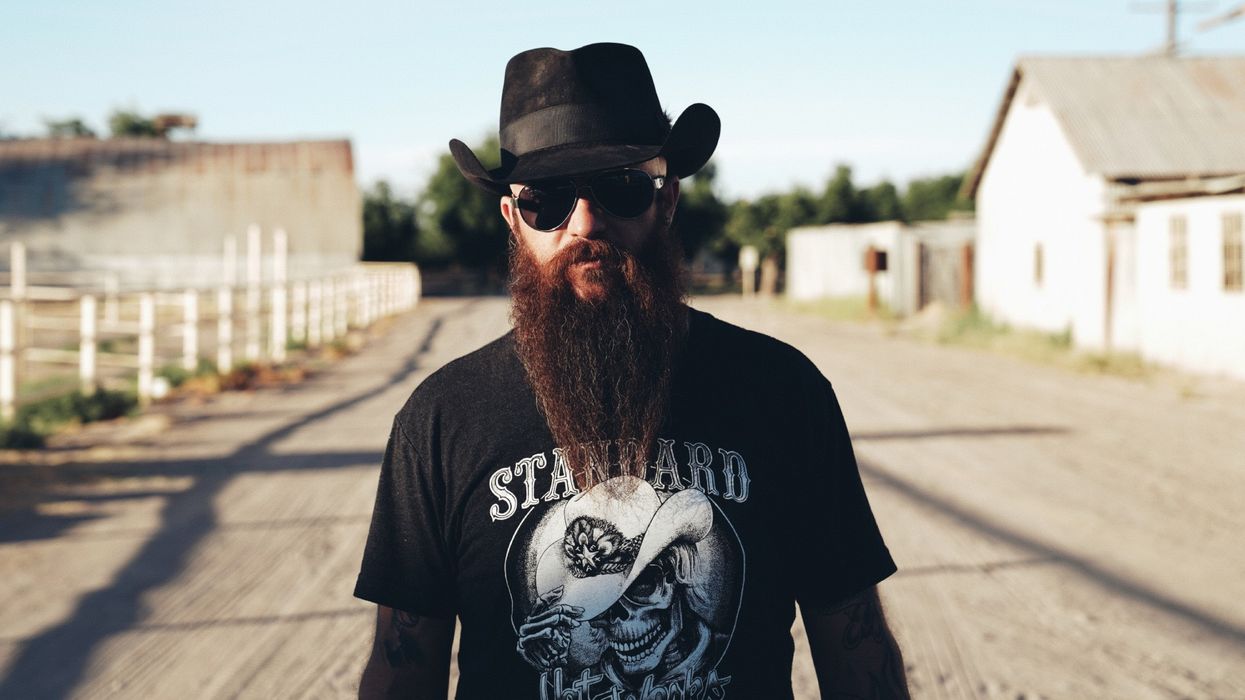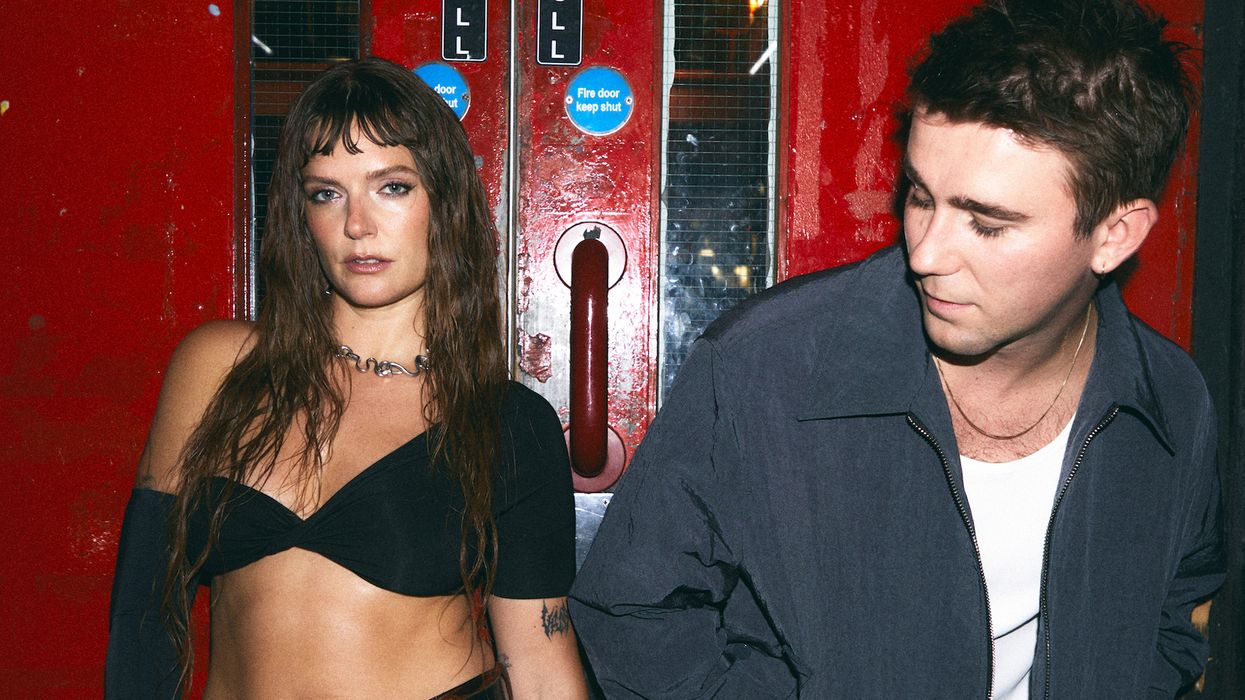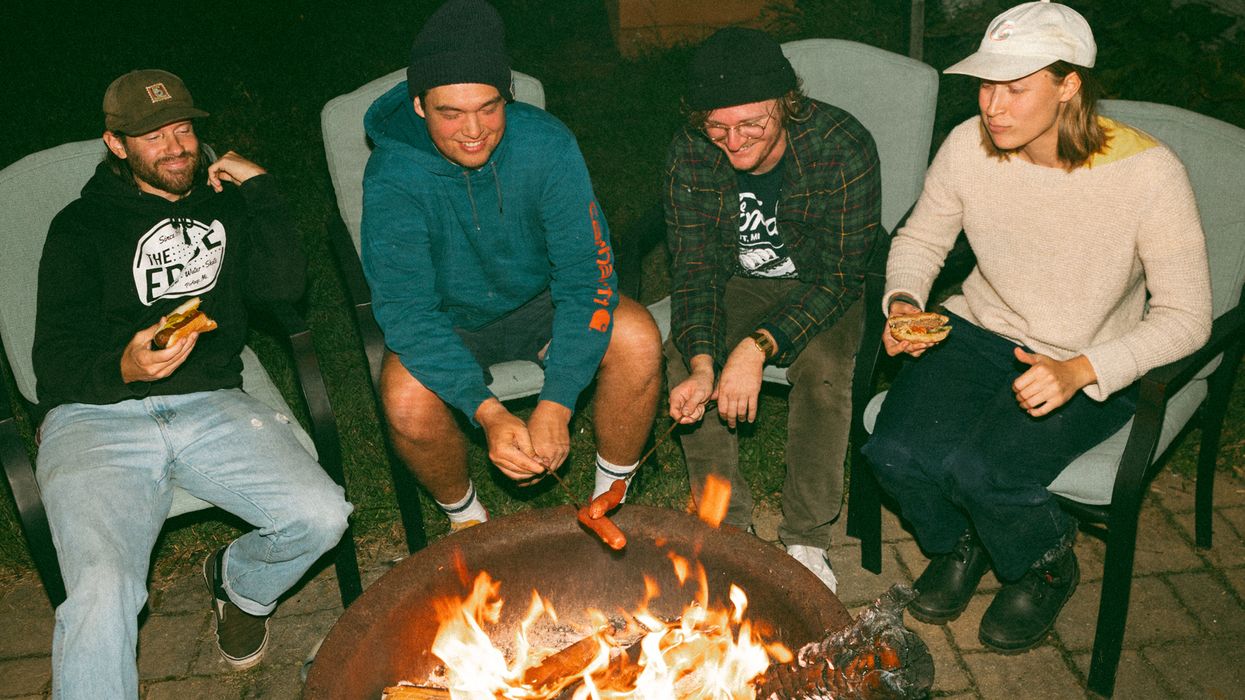August 1969 was a very Creedence month. But so were most months back then. Creedence Clearwater Revival, the most popular band in America, were riding the hot streak of all hot streaks, cranking out swamp-rock classics at a crazy pace. John Fogerty and his Northern California crew released their masterpiece Green River in the first week of August, a few months after their masterpiece Bayou Country and a couple of months before their October masterpiece Willy and the Poor Boys. Their Top 40 hits that year: “Proud Mary,” “Bad Moon Rising,” “Fortunate Son,” “Down on the Corner,” and the ultimate summer guitar choogle, “Green River.” CCR banged out five of the all-time greatest rock & roll albums in under two years: Bayou, Green River, Willy in 1969, Cosmo’s Factory and Pendulum in 1970.
So it totally makes sense that Creedence were America’s biggest band in the summer of ’69. The weird part is that Creedence are also America’s biggest band in the summer of ’24.
CCR are the most awesomely bizarre case of a classic band that’s bigger than ever right now, without anyone really noticing. But their greatest-hits collection Chronicle is riding high on the Billboard 200 every week, always somewhere in the thirties or forties. It’s currently Number 39, right ahead of the new Ariana Grande album. It’s higher than anything by the Beatles or the Stones or Zeppelin or Queen. It’s crazy because there’s no star power involved, no cult of personality, no Freddie Mercury, no Stevie/Lindsey, no backstory or drama or charisma, no biopic or TV placement, and God knows no sex appeal. Just four anonymous flannel dudes and a bunch of perfect guitar songs about rivers.
Of all the “classic rockers who stay famous forever” stories, this is the one where there’s nothing but the songs. Of all the fans who bought/streamed/whatevered Chronicle this week, I doubt half could give the leader’s name, or tell you a thing about him. But only a hardcore fan could name the other three. Anyone who can tell Stu Cook from Doug Clifford probably is Stu Cook or Doug Clifford. You couldn’t pick any of these dudes out of a police lineup. There’s no hero worship, no narrative, no stars. There’s no love story, no death story. Only the songs.
A couple of years ago, when Kate Bush’s “Running Up That Hill” blew up into a surprise Top Five pop smash, that’s when I really started noticing the astoundingly unastounding popularity of CCR. While the world was celebrating Kate’s triumph, it was funny to see Chronicle hanging around the Top 50 of the album chart, quietly topping the era’s biggest pop icons. But you couldn’t call it a renaissance, since (1) these songs never vanished, and (2) nothing was driving this. No meme or TikTok dance. No soundtrack moment. No band has ever needed a revival less.
There just aren’t any comparable examples. Bruce Springsteen doesn’t have any records this big. Neither do Pink Floyd or Van Halen or the Beach Boys or the Eagles. Any other music franchise this popular has some larger-than-life personality or drama in the brand. To pick the most obvious example, everybody who loves Fleetwood Mac — which means everybody — knows the real-life heartbreak behind the music. You could run down every Rumours track and tell me who’s breaking up with who on which drugs. But Chronicle is just as massive, without any sex or tragedy. (Rumours always goes neck and neck with CCR on the charts; last week Chronicle beat Rumours, this week the Mac slipped ahead.) Nobody will ever base a movie, novel, or Broadway show on the making of Green River. (Ugh, can you imagine a duller rock flick than Choogle Hard with a Vengeance: The Creedence Story?)
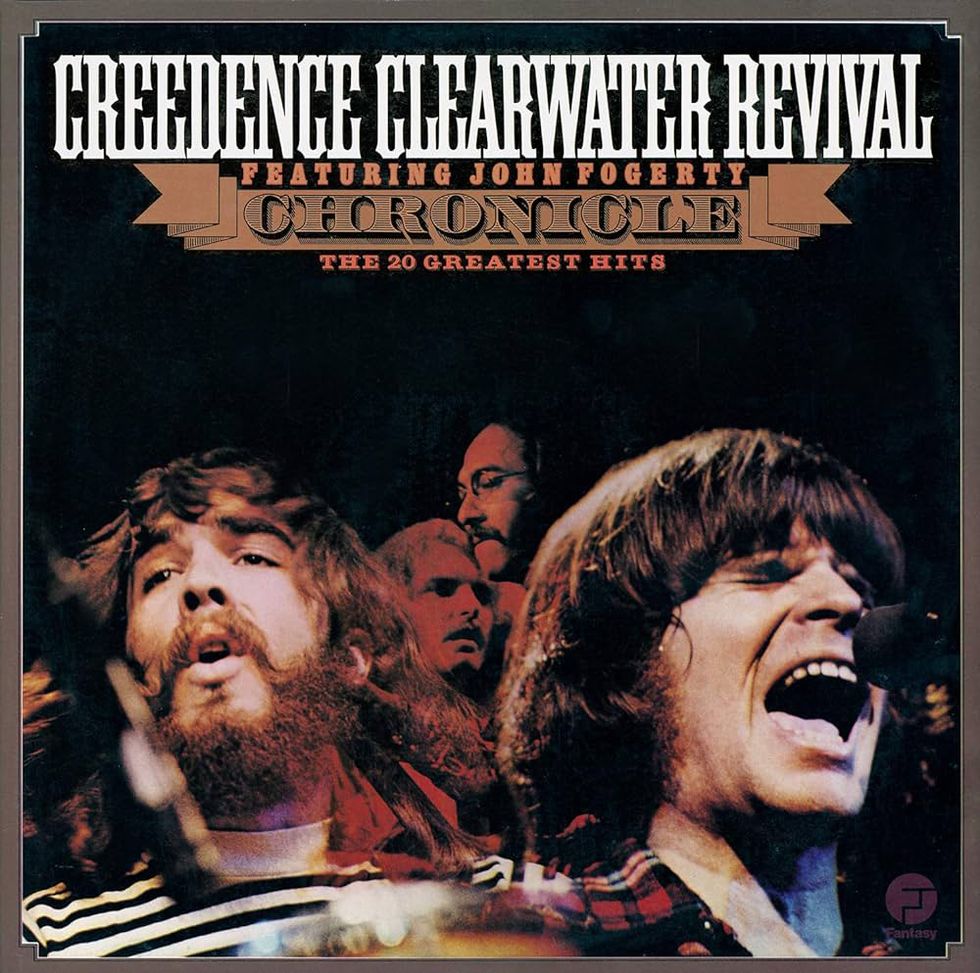
If you love those old-school rock legends, you undoubtedly relate to their personal struggles: John vs. Paul, Mick vs. Keith, Waters vs. Gilmour, Eddie vs. Dave, Steely Dan vs. the Cuervo Gold and fine Colombian. Don’t you dare look me in the eye and claim you don’t pick sides between Brian Wilson and Mike Love. But that doesn’t happen with CCR. If you were forced to come up with a juicy Behind the Music anecdote, you’d have to say, “Well, they overinvested in an offshore tax shelter in the Bahamas, which turned out to be a fraud, so they lost the publishing rights to … wait, come back!” You want a fashion statement? Flannel. You want glamour, gossip, danger? More flannel.
And it’s not even like there’s one big tentpole hit to sell the others — “Proud Mary” is probably their most famous song, but it’s not much bigger than the sixth or seventh biggest. They had five Number Two hits but never hit Number One; I don’t know if that’s a record, but it’s a perfect anti-dramatic flex for Creedence, comparable to Al Kaline retiring with 399 homers. They’ve graced a million soundtracks (who can forget the Dude in The Big Lebowski, drumming on the roof of his car?) but nothing ever became “The Song From That Movie” because they’re more famous than any flick they’ve been in.
There’s only one explanation for CCR’s phenomenal popularity: People just keep falling in love with these songs, without caring about demographic niches or generational clichés or fashion trends. It’s the kind of popularity that officially isn’t supposed to exist.
But all Creedence ever needed, then or now, was these tunes. They’ve got Koufax numbers — 65 tunes in their songbook, at least 40 of them undeniably great. They took pride in being an ace singles band, yet their albums are full of insanely brilliant deep cuts only freaks know. “Ramble Tamble,” the greatest of all Creedence songs, is a seven-minute doom-choogle that builds from pastoral bliss to apocalyptic rage, but I’ve never heard it on the radio even once. You could eliminate all 20 Chronicle hits from their catalog and you’d still have the best non-Beatles/Stones band of their era.
But why would you want to do that? It’s America’s favorite greatest-hits album because it’s also the best, with CCR’s angriest (“Fortunate Son”), scariest (“Born on the Bayou”), sluttiest (“Sweet Hitch-Hiker”), screamiest (“Travelin’ Band”), dreamiest (“Long As I Can See the Light”), hippiest (“Up Around the Bend”), meanest (“Run Through the Jungle”), countriest (“Green River”), and funniest (“Lookin’ Out My Back Door”), with the finest three seconds of Fogerty’s vocal life, that “yeeeeah” into the final chorus of “Have You Ever Seen the Rain.” But my favorite isn’t even a Fogerty tune — “I Heard It Through the Grapevine” is their bash at a Marvin Gaye classic, not even getting the words right, just a headbang guitar jam riding Doug Clifford’s cowbell clunks, their most libidinal sex groove, building for a comically absurd 11 minutes. No song sounds better in the car in the summer sun with the windows down. Except maybe the other songs on Chronicle.
The Creedence guitars are full of NoCal hippie sunshine, with the band merrily jamming away, except they never sounded like other hippies because they had a drummer who didn’t suck. Cook and Clifford were a monster rhythm section, the U.S. answer to Wyman and Watts. Green River is my sentimental fave, even if I concede that Cosmo’s Factory is better. “Sinister Purpose” is an evil blues slither where Fogerty growls, “Burn away the goodness/You and I remain.” (Pavement used to rip up that one live, one of the countless indie bands that worshipped CCR.) “Tombstone Shadow” has the spookiest one-note guitar solo this side of “Cinnamon Girl.” He ends with the lament “Wrote a Song for Everyone” (“when I couldn’t even talk to you”), but it’s no boast, because he’s selling himself short: He wrote a few dozen songs for everyone.
But Fogerty never had any interest in the starmaking machinery. Nobody ever wondered who he was making out with, if only because he never bothered to sing about making out. “Born on the Bayou” has that out-of-nowhere line about “rollin’ with some Cajun queen,” but she’s only there because he’s trying to make conversation with his hound dog. (Maybe he meant Skee-Ball?) He was a kid from the Bay Area suburbs, writing American myths out of his rock & roll fantasies. He’d never set foot on a bayou in his life. He made up regional accents nobody spoke. (“Big wheel keep on toinin’,” “I hoid it through the grapevine” — who’s his dialect coach, Curly Howard?) He avoided the whole cult-of-personality thing. In Tina Turner’s version of “Proud Mary,” she turns it into a pageant of American history, the clash between past and present, rural and urban, misogyny and racism and class rage, summing up the nation’s cultural memory. When Fogerty sings it, it’s a dude who likes boats.
But ironically, there’s plenty of dramatic lore in the Creedence story, if anyone knew or cared. There’s two brothers hating each other — after big brother Tom Fogerty quit the band, they never reconciled before his death. John was one of the very few rock stars to get drafted in the Vietnam era — he did his time in the Army, waiting out a year of misery, then returned to fight his way back into the Bay Area bar-band scene. None of his peers had a struggle like that to boast about, but it was a cred card he refused to play, even when he was protesting the war in “Fortunate Son.” There’s even the hilarious lawsuit after his 1985 solo hit “The Old Man Down the Road” — it sounded so much like Creedence, his ex-label took him to court, making him the only rock star ever to get sued for plagiarizing himself. He had to take the witness stand with a guitar, to show the jury why his songs sounded like John Fogerty. During cross-examination, he snapped, “What am I supposed to do, get an inoculation?”
Great stories — but only hardcore fans know them, because Fogerty had zero knack for talking about himself. Since the band broke up, he’s never stopped railing at his ex-bandmates, stewing over business injustices he never had much luck convincing anyone else to care about. His 2015 memoir is a barely-readable pity party. Even in their heyday, the group’s interviews were nothing but drab complaints about not getting taken seriously enough. As Cook groused to Rolling Stone, “People know about our music but they don’t know about our heads.”
That hasn’t changed — but it’s never gotten in the way of the music. If there’s one hit that sums up Fogerty’s populist genius, it’s “Travelin’ Band” — Huey “Piano” Smith played at Ramones velocity, connecting the Crescent City with CBGB. (I saw Bon Jovi play it on the New Jersey tour, with Sebastian Bach wailing along; Lainey Wilson just did a great country version this spring.) “Fortunate Son” and “Don’t Look Now” are two of rock’s fiercest political rants, paired together on Willy in under five minutes, talking class privilege in prescient ways. He was the first singer to flip off Reagan (“Ronnie the Popular”), raging about “actors in the White House,” seeing the future of American fascism more clearly than self-righteous hippie types did. “It’s Just a Thought” is one of rock’s most bittersweet hippie-dad meditations on growing up, at the ripe old age of 25. Even the much-maligned “Sailor’s Lament” is righteous Dead fan-fic: Uncle John Fogerty’s Band, the workingman’s Workingmans Dead. (As my editor Jon Dolan brilliantly calls it, “proto-yacht.”)
CCR were always the band that everybody likes. Their populism spoke to punk rebels from Sleater-Kinney (“Fortunate Son”) to the Clash (play “London Calling” next to “Walk on the Water”) to the Minutemen — it took nerves of blue-collar steel to aim “Don’t Look Now” at the Reaganist charade of 1984. Mike Watt decorated an early Firehose record with an autograph from his hero: “To Mike. Keep on keepin’ on.” You can make a great playlist of CCR knockoffs: The Hollies’ “Long Cool Woman (In a Black Dress),” Lou Reed’s “September Song,” Nick Lowe’s “Stick It Where the Sun Don’t Shine.” But the best: Pavement’s “Harness Your Hopes,” a Nineties B-side choogle nobody noticed for 20 years, until the world suddenly realized it was a lost classic.
All these years later, it’s still a shock that Creedence packed so many legendary songs into two madcap years. But it’s an even bigger shock how these songs hold up now. Chronicle has never peaked higher than Number 18, yet it’s still a blockbuster every week. No other act has been so popular for so long, based on absolutely nothing but the music. Like their most famous fictional fan, the Dude, these songs abide. Creedence will be massive in September 2024, just as they were massive in September 1969. These songs will keep rolling, as long as those big wheels keep on turning.
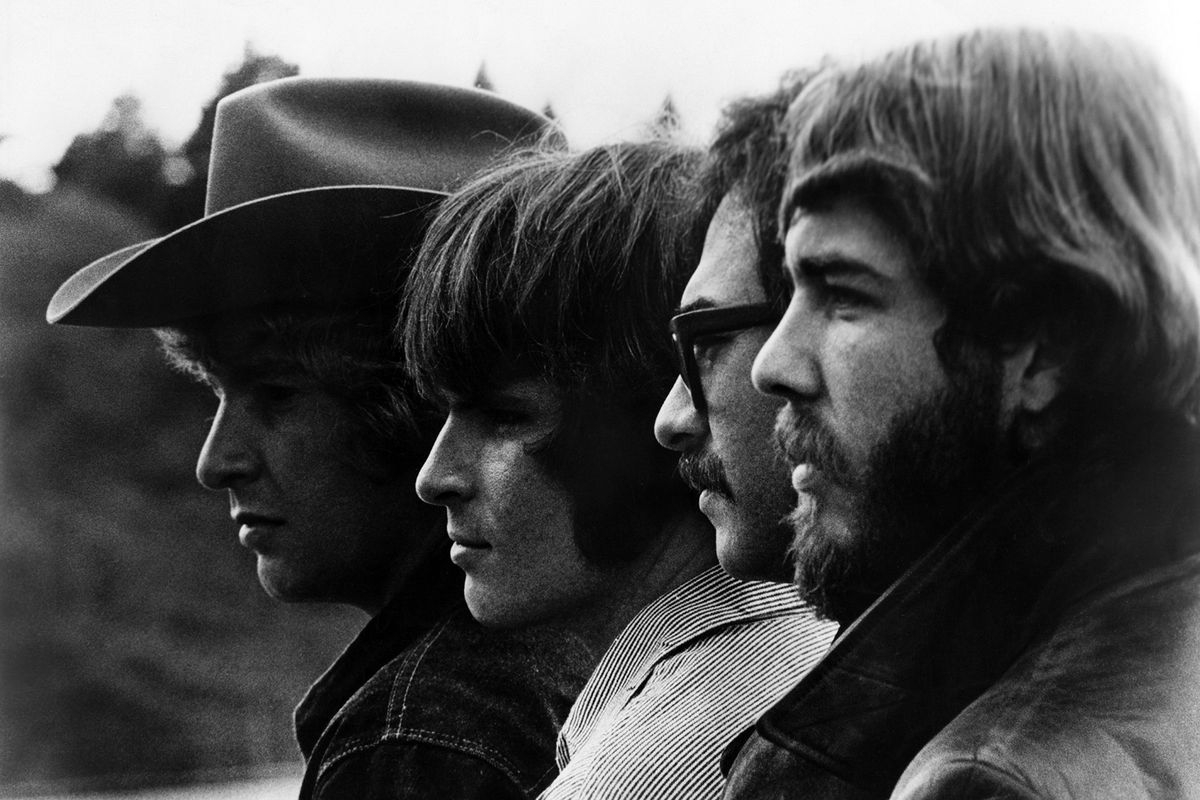





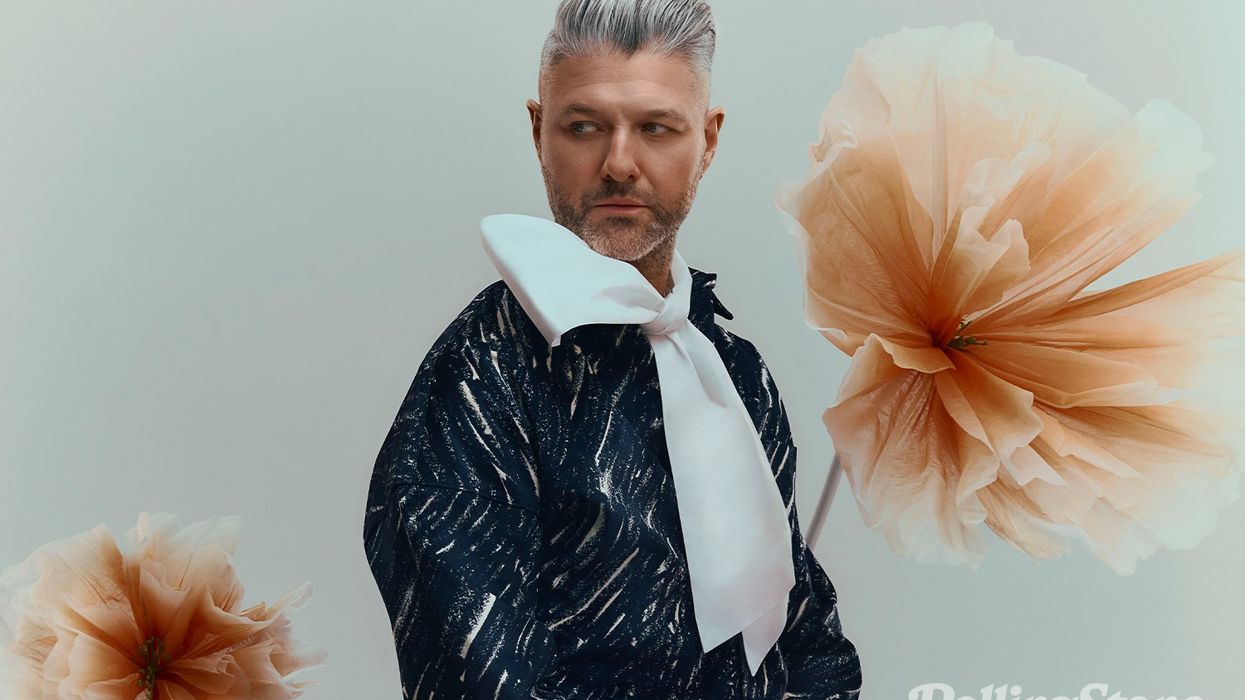
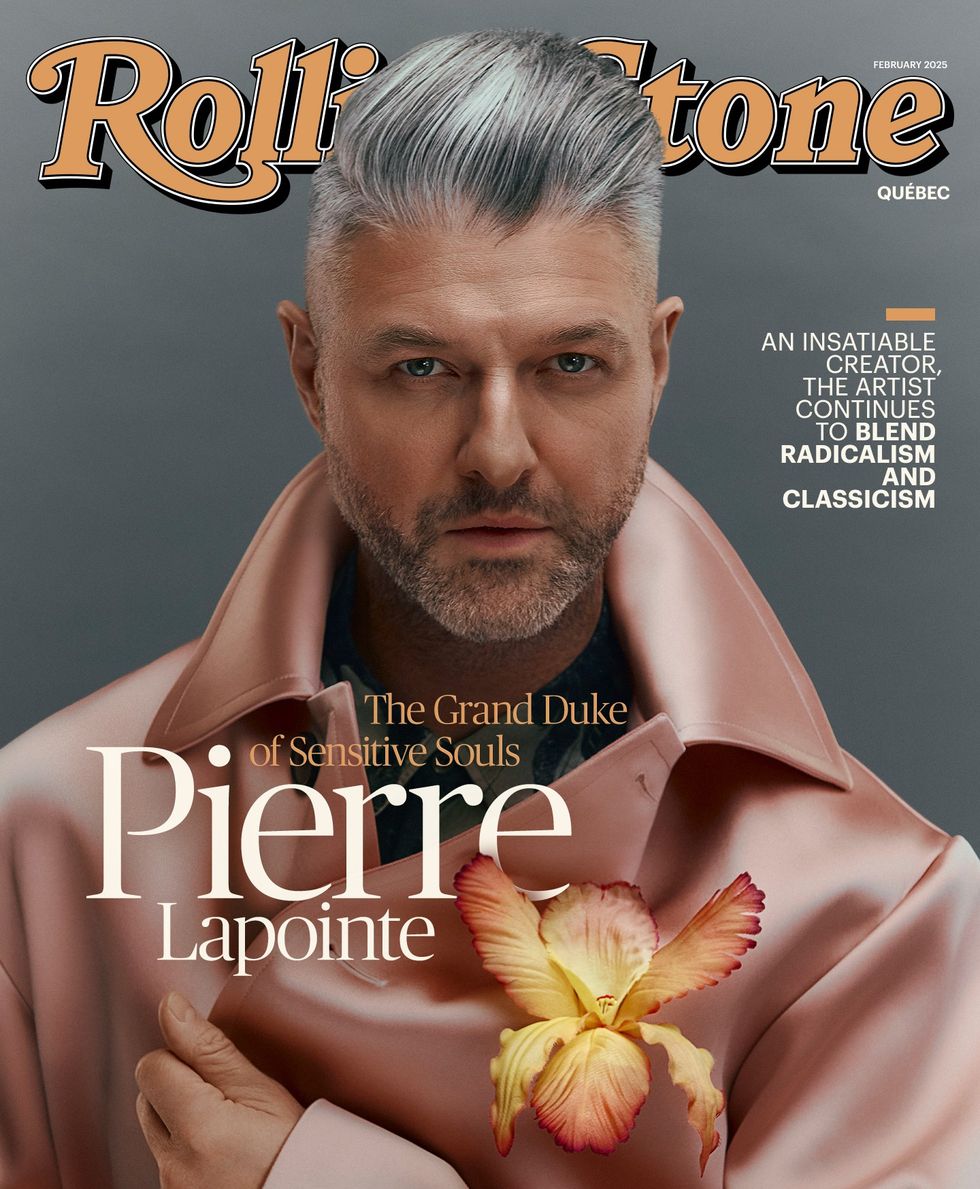 Coat (polyester and wool), shirt (silk), Dries Van Noten, SSENSE.com / Flower (silk), M&S Schmalberg
Coat (polyester and wool), shirt (silk), Dries Van Noten, SSENSE.com / Flower (silk), M&S Schmalberg
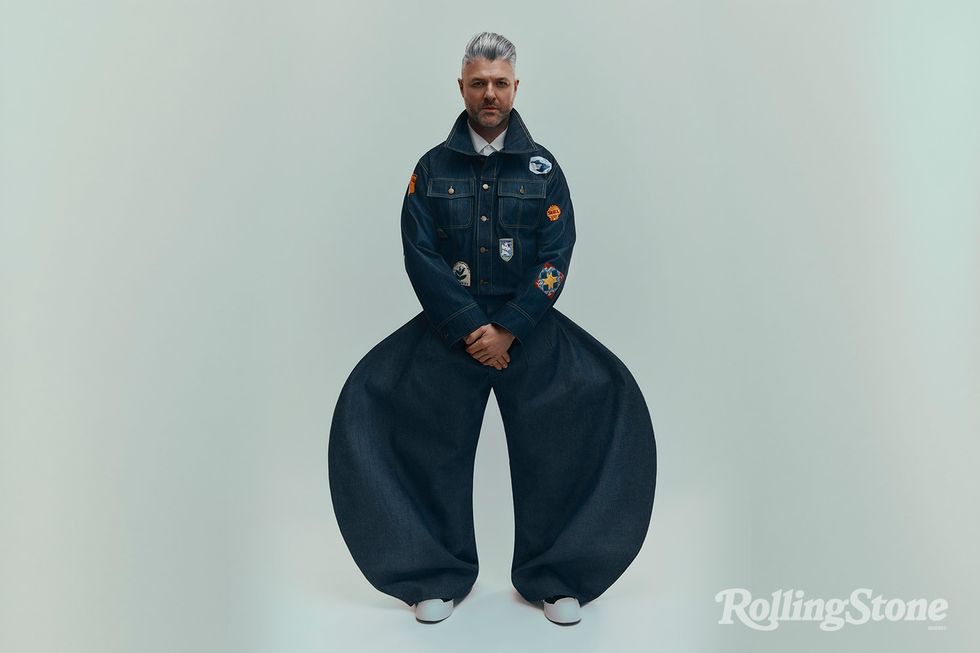 Blouson (denim and hand embroidered patches), WJ Crosson / Shit (polyester), Homme plissé Issey Miyake, Holt Renfrew/Pants from personal collection/ Shoes(canvas), Marni
Blouson (denim and hand embroidered patches), WJ Crosson / Shit (polyester), Homme plissé Issey Miyake, Holt Renfrew/Pants from personal collection/ Shoes(canvas), Marni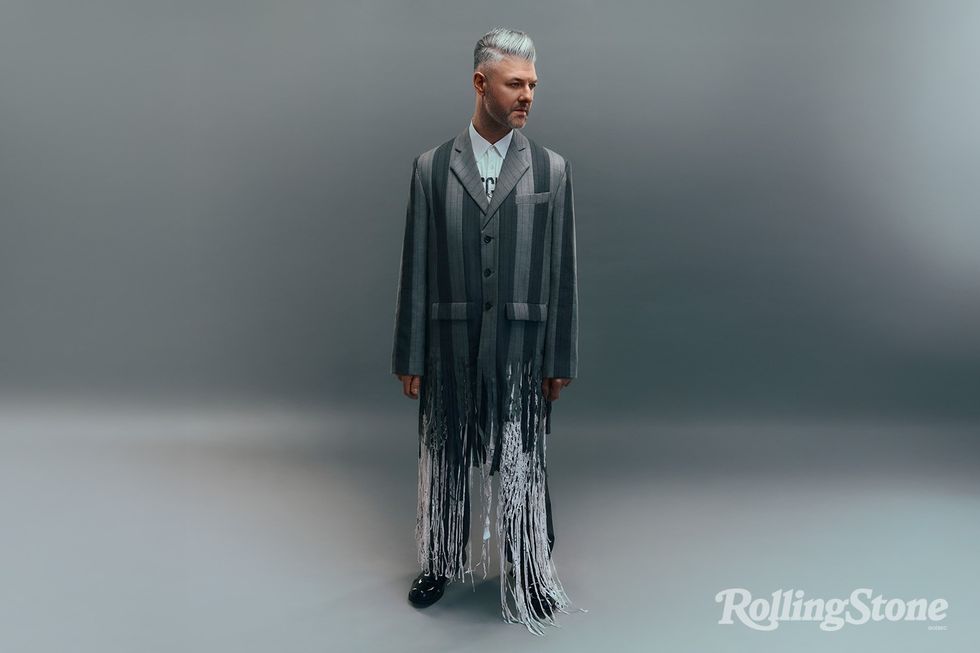 Jacket and pants (virgin wool), shirt (acrylic coated cotton), Moschino / Shoes from Pierre Lapointe's personal collection
Jacket and pants (virgin wool), shirt (acrylic coated cotton), Moschino / Shoes from Pierre Lapointe's personal collection